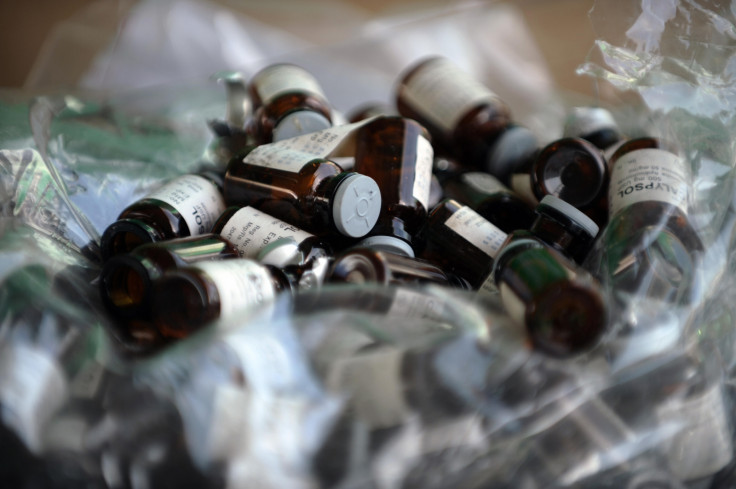Brain-damaged baby who ate ketamine-laced eggs and nearly died makes miracle recovery
The baby, her brother and grandmother were all found unconscious at their home.

A 10-month-old girl almost died when she was fed eggs laced with the drug ketamine. The girl was given a meal cooked in dishes used to prepare ketamine as a horse tranquilliser.
A family member discovered the girl, her brother, and grandmother all unconscious at their home. The baby was struggling to breathe and was rushed to Riley Hospital for Children, in Indianapolis. While her brother and grandmother were treated more easily, the girl was in a serious state.
She underwent emergency surgery to relieve pressure on her brain, which had started to swell. This was done by cutting a bone from her skull. She also spent six days in a coma to allow her brain time to heal.
Neurosurgeon Dr Daniel Fulkerson explained: "The child was served eggs that were cooked in the same dishes used to prepare the drug. The child vomited after eating the eggs and then went back to bed. The other two also ate eggs prepared with the same dishes."
The case has emerged after it was published in the Journal of Neurosurgery: Paediatrics.
The journal notes that the girl has made a "remarkable recovery" considering the state she was in when doctors were able to treat her. A year after the incident, the doctors have found that despite suffering permanent brain damage, she shows no adverse effects.
The area of the brain that was damaged controls part of the muscular system, but the girl regained full control over her body. She has exhibited a mild speech delay but this should be rectified as she progresses through her age-related milestones.
The study also discussed how cases of ketamine abuse were on the rise, with the number of ketamine-related deaths in the UK between 1999 and 2008 increasing ten-fold.
It is because of these rises that the journal pointed out the the importance of gaining knowledge on the effects of ketamine overdose on children and other opioids such as fentanyl which has also experienced an increase in usage over recent years.
© Copyright IBTimes 2025. All rights reserved.






















